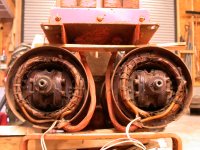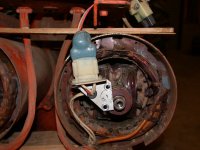Jimbrown
Veteran Member
"Not arguing, just interested in this last sentence, I know that the small Honda gensets such as the 2000 and 3000 inverter units tie the outputs together when you chain them together. Always thought that odd is this the same principle?"
The small hondas are DC generators driving an inverter. Totally different.
The small hondas are DC generators driving an inverter. Totally different.


